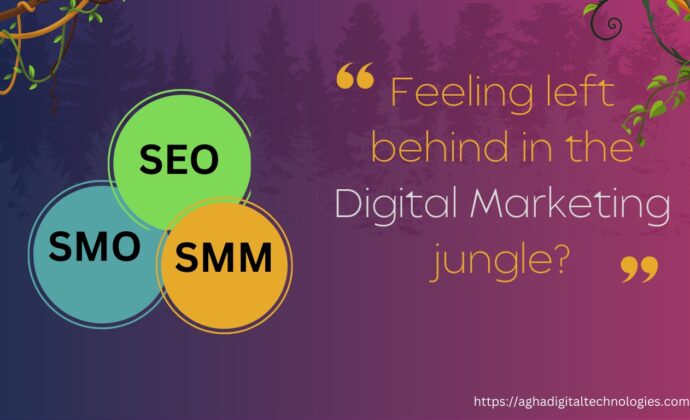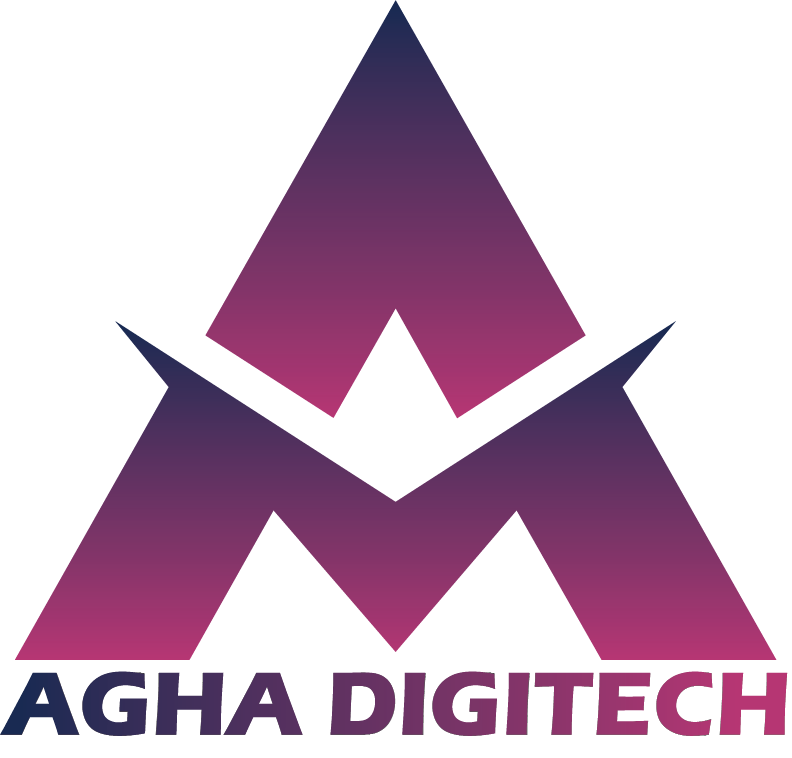The Convergence of SEO, SMO, and SMM: A Holistic Approach

Historically viewed as separate disciplines, SEO, SMO, and SMM have increasingly overlapped in today’s interconnected digital landscape. This evolution reflects the fluid relationships between search engines and social platforms. Recognizing their interdependence yields myriad benefits. This article explores the synergies between these domains and how agencies can leverage coordinated strategies for greater rewards.
What is SEO, SMO, and SMM
SEO, or Search Engine Optimization, involves optimizing a website to rank higher in search engine results pages (SERPs) and attract organic traffic. SMO, or Social Media Optimization, focuses on optimizing social media profiles and content to increase visibility and engagement. SMM, or Social Media Marketing, utilizes social media platforms for advertising and promotion to reach a target audience. Though nuanced, core functions group thus:
- SEO (search engine optimization) optimizes websites to rank highly for relevant keywords in search engines.
- SMO (social media optimization) focuses efforts on optimizing a brand’s social media presence and increasing visibility within platforms.
- SMM (social media marketing) leverages social networks as marketing channels to engage audiences and drive business goals.
How These Three Disciplines Converge
While SEO, SMO, and SMM each have distinct goals and strategies, they converge in their aim to enhance online visibility, engagement, and ultimately, conversions. Together, they form a comprehensive approach to digital marketing, leveraging both search engines and social media platforms to maximize reach and impact. As platforms integrate and search engines factor social signals, distinctions blur:
- Key SEO components: content, linking, technical optimization
- SMO optimizes profile setup, content formatting, and platform-specific elements
- SMM centers on community building, engaging conversations, and implementing campaigns.
The Interconnectedness of SEO, SMO, and SMM
The interconnectedness of SEO, SMO, and SMM lies in their symbiotic relationship and shared objectives. For example, social media signals can influence search engine rankings, while SEO-optimized content can improve social media engagement. Integrating these disciplines allows marketers to amplify their digital presence and achieve greater success in reaching and engaging their target audience across various online channels. With mutual influence abounding, coordinated activity wields advantages:
- SEO influences SMO/SMM strategies through shared content potentially garnering social shares/mentions and boosting search presence.
- Social signals impact search rankings when engaged users develop connections and share quality articles expanding a brand’s authority.
- Integrating SEO, SMO, and SMM tactics – like optimizing visuals for social posting and search – delivers outsized results greater than any channel in isolation.
Benefits of a Holistic Approach
Taking a holistic approach to digital marketing, encompassing SEO, SMO, and SMM, offers numerous benefits for businesses seeking to maximize their online presence and engagement. By integrating these disciplines seamlessly, organizations can enhance brand visibility across multiple channels, increase website traffic and conversions, and foster stronger connections with their target audience. A holistic approach enables businesses to leverage the strengths of each discipline synergistically, resulting in a more comprehensive and effective marketing strategy. Additionally, by aligning their efforts across SEO, SMO, and SMM, businesses can achieve greater consistency in messaging and branding, leading to improved brand recognition and loyalty. A unified strategy leveraging interdependencies amplifies benefits:
- Improved brand visibility as optimization across channels raises the profile.
- Enhanced engagement through more impactful multi-channel asset distribution stimulating higher participation.
- Higher organic traffic drives better website metrics like views and conversions as optimization converges online touchpoints.
Enhanced User Engagement and Interaction:
A holistic approach to digital marketing, integrating SEO, SMO, and SMM, fosters enhanced user engagement and interaction across multiple online channels. By creating compelling content that resonates with their target audience and leveraging social media platforms for active engagement, businesses can build meaningful relationships with their customers. Through likes, shares, comments, and other forms of interaction, brands can establish a dialogue with their audience, driving greater brand awareness, loyalty, and advocacy. Moreover, by providing valuable and relevant content tailored to user preferences and interests, businesses can encourage deeper engagement and longer-lasting connections, ultimately leading to increased customer satisfaction and retention.
Higher Website Traffic and Conversion Rates:
Implementing a holistic approach to digital marketing can result in higher website traffic and conversion rates, driving business growth and success. By optimizing both website content and social media profiles for search engines and user experience, businesses can attract more qualified visitors to their websites. Furthermore, by integrating compelling calls-to-action and conversion-focused strategies into their marketing campaigns, businesses can effectively guide visitors through the conversion funnel, turning leads into customers and customers into loyal advocates. The combined impact of increased website traffic and improved conversion rates leads to greater ROI and revenue generation for businesses, demonstrating the tangible benefits of adopting a holistic approach to digital marketing.
Creating High-Quality, Shareable Content:
In the digital landscape, creating high-quality, shareable content is paramount for businesses aiming to succeed in their marketing efforts. Such content serves as the cornerstone of effective digital marketing strategies, resonating with audiences and driving engagement across various online platforms. High-quality content is not only informative and valuable but also entertaining and compelling, capturing the attention of target audiences and encouraging them to take action. Shareable content, on the other hand, possesses qualities that make it highly share-worthy, such as being visually appealing, emotionally resonant, or thought-provoking.
By producing content that meets these criteria, businesses can leverage the power of social sharing to amplify their reach and visibility, extending their brand’s influence to new audiences and driving organic traffic to their websites. Additionally, shareable content fosters community engagement and interaction, as users connect with and respond to the content by sharing it with their networks, commenting on it, or engaging in discussions around it. Ultimately, investing in the creation of high-quality, shareable content is a strategic imperative for businesses looking to establish a strong digital presence and achieve long-term success in today’s competitive online landscape.
Strategies for Implementing a Holistic Approach
Implementing a holistic approach to digital marketing requires careful planning and coordination across multiple channels and disciplines. Key strategies include creating high-quality, shareable content that resonates with target audiences, optimizing website content for search engines and social media algorithms, and engaging with audiences consistently across various social media platforms. Additionally, businesses can leverage data analytics and insights to inform their marketing strategies and measure the impact of their efforts across SEO, SMO, and SMM channels. Collaborating cross-functionally within the organization and aligning marketing objectives with broader business goals is also essential for the successful. Building on relationships between channels delivers strong outcomes:
- Creating high-quality, shareable content consumable across both search and social optimizes reach.
- Distributing through major social networks expands the funnel while fine-tuning to every platform boosts performance.
- Optimizing websites, profiles, and posts for search and social algorithms through integrated best practices diversifies impact.
Challenges and Considerations
Despite its numerous benefits, adopting a holistic approach to digital marketing presents certain challenges and considerations for businesses. These may include overcoming silos and departmental barriers within the organization, ensuring alignment and consistency across different marketing channels, and managing resources effectively to execute integrated marketing campaigns. Additionally, staying updated with evolving trends and technologies in SEO, SMO, and SMM requires ongoing education and adaptation. Addressing these challenges requires strategic planning, clear communication, and a commitment to continuous improvement to realize the full potential of a holistic approach to digital marketing. While powerful, holistic approaches require:
- Managing expanded scopes necessitates disciplined planning and resource allotment.
- Integrating traditionally separated specializations may involve change management.
- Coordination demands constant communication across specialized teams.
- Analytics must isolate discrete tactic impacts despite blurred lines for refined optimization.
Conclusion
In today’s interconnected digital ecosystem, businesses excel by recognizing interwoven relationships fueling search and social platforms. Orchestrating SEO, SMO, and SMM tactics through a holistic lens delivers unparalleled results by magnifying combined efforts. With diligent integration, agencies help clients amplify brand visibility far beyond any single-optimization approach in isolation.
 Free Consultation
Free Consultation



